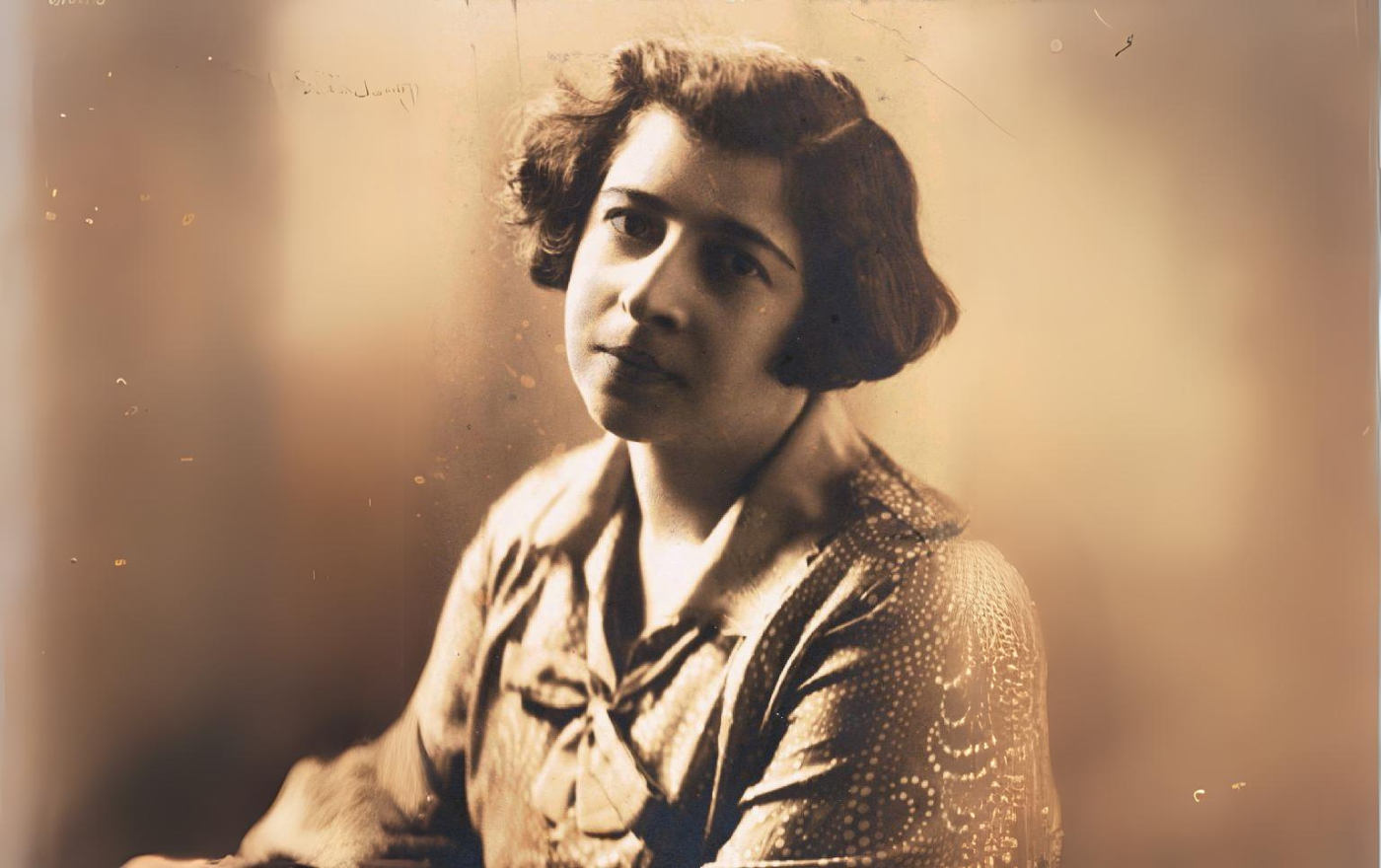Rachel Korn (1898–1982)
Rachel Korn is closely related to the Jewish literary environment of interwar Galicia. Together with Rokhl Auerbakh and Debora Vogel, she launched the Zuschtajer journal, laying the foundation for experimental Yiddish literature of the time. Korn was born in 1898 to the Jewish family of Hanna and Wolf Häring in the village of Pidlisky, near Mostyska in the Lviv region. She was the oldest of three children in the family.
Korn became interested in literature as a child, writing her first poems in Polish, the language with which she grew up and in which she received her school education. Her family fled to Vienna at the start of the First World War. They returned after the war to Przemyśl, where Korn lived until 1941. Her first published texts appeared in the Zionist newspaper Nowy Dziennik and the socialist journal Głos Przemyski in 1918. These articles were written in Polish, but she published her first Yiddish poem in the Lemberger Tageblatt a year later. Her recognition grew with the publication of the poetry collections Dorf (Village, 1928) and Royter mon (Red Poppies, 1937). Korn’s first collection of prose, Erd (Earth), was published in 1936.
Korn married Hersh Korn, and they had a daughter, Irena. The family planned to emigrate to the United States, but the trip fell through due to the Soviet invasion in 1939. In June 1941, when the troops of the Third Reich entered Przemyśl, Korn was in Lviv, visiting her daughter. She managed to avoid the Holocaust by fleeing deep into the Soviet Union. However, her husband, brothers, and mother, who remained in Przemyśl, did not survive the war. Korn returned to Poland after the Second World War. She lived and worked in Łódź, where she was elected head of the Association of Jewish Writers. In 1948, Korn traveled to Stockholm to represent the association at a PEN club congress. She never returned to Poland from there but emigrated to Canada instead.
In Canada, Korn became one of the best postwar-era Yiddish poets. Her fourth poetry collection, Heym un heymlozikayt (Home and Homelessness), was published in 1948. Her later texts are imbued with nostalgia for Galicia and intimately linked to the inhabitants of Jewish towns. The poems are filled with the refined simplicity of language and naked feelings. In the last years of her life, Korn often turned to symbolism. She lived and wrote poetry in Montreal until her death in 1982. A selection of her poems in Ukrainian translation was included in the Anthology of Jewish Poetry published in Kyiv in 2007.
Translated from the Ukrainian by Vasyl Starko.




















